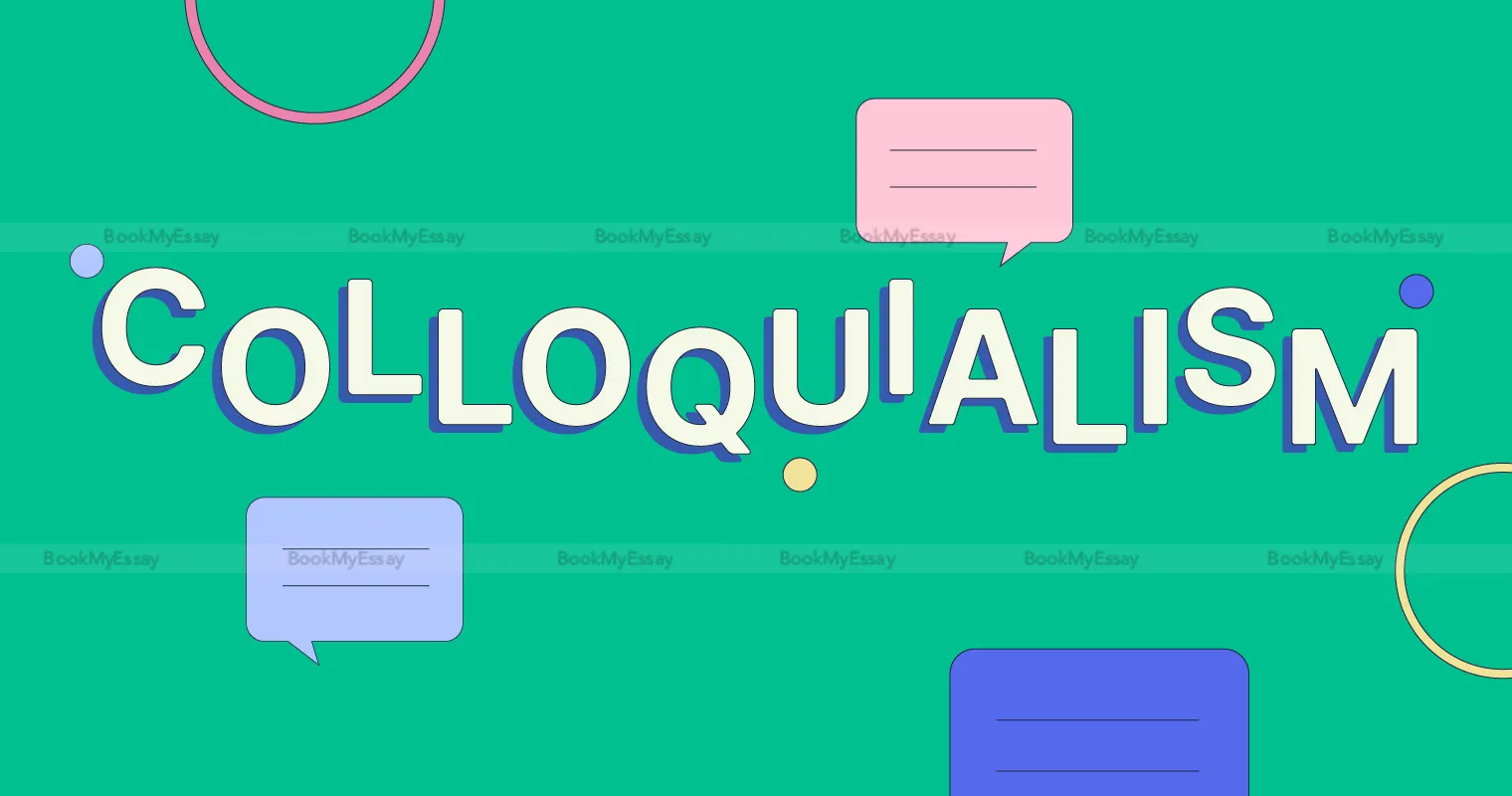Examples Colloquialism
Examples of colloquialism are abundant in everyday language, showcasing how people communicate informally and casually. These expressions often vary based on region, culture, and social context. Some colloquialism examples include:
- "Wanna" instead of "want to": "I wanna go to the movies tonight."
- "Gonna" instead of "going to": "She's gonna be late for the meeting."
- "Ain't" instead of "is not" or "are not": "That ain't gonna work."
- "Y'all" instead of "you all" or "you guys": "Y'all coming over for dinner?"
- "Couch potato" to describe someone lazy: "He's such a couch potato, always watching TV."
Colloquialisms add flavor and familiarity to conversations, often creating a sense of connection among speakers. While they may not be suitable for formal writing or professional settings, they play a vital role in everyday communication, reflecting the dynamism and richness of language as it evolves within different communities.
What Are Some Examples Of Colloquialisms Commonly Used In American English?
Colloquialism are informal expressions or slang terms that are commonly used in everyday conversations. In American English, there are numerous colloquialisms that add color and character to the language. For instance, "gonna" is a colloquialism for "going to," "wanna" for "want to," and "ain't" for "am not," "is not," or "are not." These contractions are widely used in casual speech and writing.
Another example is "buck," which colloquially refers to a dollar, while "cool" is a colloquialism meaning excellent or great. "Hang out" is a common way to say spend time together informally, and "hit the sack" means to go to bed.
In modern times, with the rise of technology and online platforms, new colloquialisms like "LOL" (laugh out loud), "BRB" (be right back), and "OMG" (oh my god) have become prevalent in digital communication.
For students seeking to understand colloquialisms and improve their grasp of informal language, seeking assignment help online can provide valuable insights and guidance.
How Do Colloquialisms Vary Across Different English-Speaking Regions?
In the realm of academic writing, understanding the nuances of colloquialisms across various English-speaking regions is crucial for effective communication. Colloquialisms, informal expressions or phrases unique to specific geographical areas, can vary significantly in meaning and usage, presenting challenges for writers and scholars.
Assignment assistance in this context requires a deep dive into regional colloquialisms, acknowledging their impact on language clarity and cultural relevance. For instance, while "pop" might refer to a carbonated beverage in the United States, it denotes father in some parts of the UK. Similarly, the term "boot" can mean the trunk of a car in American English but refers to a type of footwear in British English.
Recognizing these differences is vital for academic writers to ensure their work resonates with diverse audiences and avoids potential misunderstandings. By incorporating regional variations of colloquialisms mindfully, writers can enhance the accessibility and authenticity of their scholarly contributions.

Can You Provide Examples Of Colloquialisms That Have Become Widely Accepted In Formal Writing?
Assignment Provider and All Assignment Help, while primarily used in informal contexts, have become widely accepted in formal writing. These colloquialisms have transitioned into formal usage due to their familiarity and clarity in conveying specific meanings within academic and professional environments.
For instance, "Assignment Provider" refers to entities or individuals that offer services related to academic assignments, including research papers, essays, and projects. Similarly, "All Assignment Help" denotes comprehensive assistance available for various academic tasks, such as editing, proofreading, and guidance on complex topics.
These terms have gained acceptance in formal writing, especially in educational settings, where students and professionals frequently seek external support for their assignments. Incorporating these colloquialisms in formal discourse reflects the evolving language landscape, where specialized terms from informal domains gradually integrate into accepted vocabulary for specific niches.
As language continues to evolve, such transitions highlight the dynamic nature of communication and the adaptability of language conventions in diverse contexts.
How Is Colloquialism Taught By BookMyEssay?
When facing an urgent assignment on colloquialism, turning to a reliable assignment writing service like BookMyEssay can be immensely beneficial. BookMyEssay approaches teaching colloquialism with a blend of expertise and innovation.
Firstly, the platform provides comprehensive study materials that cover various aspects of colloquial language usage, including slang, idioms, and regional dialects. These materials are designed to enhance understanding and practical application.
Secondly, BookMyEssay offers personalized tutoring sessions where students can interact with experienced linguists. These sessions focus on real-world examples, allowing students to grasp colloquialism in context.
Moreover, the platform encourages active participation through group discussions and collaborative projects. This fosters a dynamic learning environment where students can exchange ideas and learn from each other's experiences.
Overall, BookMyEssay stands out as a top choice for learning colloquialism due to its commitment to quality, innovative teaching methods, and emphasis on practical application.







 3 Bellbridge Dr, Hoppers Crossing, Melbourne VIC 3029
3 Bellbridge Dr, Hoppers Crossing, Melbourne VIC 3029




